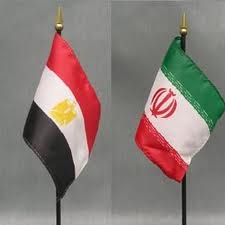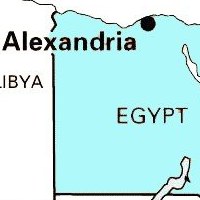![]()
Sun, May 01, 2011 | The Meir Amit Intelligence and Terrorism Information Center
Iran: Reservations over Reinstatement of Iran-Egypt Relations in the Midst of Reports on Rapprochement
Iran’s foreign minister Ali-Akbar Salehi once again announced this week that Iran is interested in improving its relations with Egypt. Speaking at a meeting with Iranian diplomats in Tehran, the minister noted that improving the relations between the countries will contribute to peace, stability, and security in the region. He expressed hope that the relations between the two countries will resume soon despite the pressure exerted on Egypt to do otherwise (Fars, April 23). Salehi reported last week that the two countries were working on cultivating higher-level relations, expressing hope that the process, which may take a while, will reach completion as soon as possible. Salehi also invited Egypt’s foreign minister Nabil al-Arabi to visit Tehran.
At the same time, the chairman of the Iran-Egypt Trade Council reported that, for the first time since the fall of Hosni Mubarak’s regime, the two countries signed an agreement to increase their cooperation in tourism. Muhyaddin al-Ghandour reported that, according to the agreement signed last week between tourism companies from Egypt and Iran, 10,000 Iranians can visit Egypt each month, and 60,000 Egyptians can visit Iran. He added that the agreement will be implemented once the countries agree on higher-level relations with each other (Fars, April 21).
On the backdrop of reports on the possible reinstatement of relations between the two countries, this past week several conservative media in Iran expressed reservations over that possibility at the present time.
Tehran Emrouz, a daily affiliated with Tehran’s mayor, published an editorial claiming that unnecessary statements by top Iranian officials about renewing relations with Egypt may prove detrimental to Iran’s national interests. Diplomatic relations between countries are not like interpersonal relations, the article said, and a government cannot act as a person who is friendly and courteous towards his fellow man while ignoring pertinent issues. A government must consider national interests and differences of opinion between the sides.
Even if there is an agreement on expanding relations with Egypt, Iran must take into account the current internal political developments in Egypt. One must keep in mind that it was Egypt that imposed restrictions on the number of visitors from Iran due to objections raised by its security and intelligence services. Egypt is undergoing a transitional period, with new, hard-to-predict developments taking place every day. Considering these conditions, Iran must take into account that certain measures stemming from inadequate understanding of Egypt’s internal circumstances may compromise the relations between the two countries in the long run. The daily warned about attempts by opportunists to take advantage of Egypt’s transitional phase to improve the Iran-Egypt relations with the intention of exploiting them for their own economic interests (Tehran Emrouz, April 21).
The daily Jomhuri-ye Eslami, which in recent weeks has brought up concerns about the magnitude of change in Egypt following the fall of President Mubarak, has also expressed misgivings over the intention to expand relations with Egypt at the present time.
An editorial published by the daily earlier this week said that unlike top Iranian officials, who announced Iran’s willingness to reinstate the relations with Egypt, top Egyptian officials once again demanded that Iran change the name of Khalid al-Islambouli street in Tehran, named after President Sadat’s assassin. According to the daily, the demand shows that the remains of President Mubarak’s regime still linger despite the popular uprising in Egypt, and that, in practice, there has been no real change.
While the daily had praise for the popular uprising, it claimed that the political game played by Mubarak and his supporters, aiming to resist the demands of those behind the riots, is not over yet, and that the fruits of the revolution have yet to be reaped. There have been no developments requiring a change in Iran’s policy towards Egypt. Closer cooperation with any Islamic country, and Egypt in particular, is obviously highly significant. Iran, however, must be careful about how it chooses to attain this objective.
The daily warned that the regime in Cairo may take advantage of the renewal of relations with Tehran to persuade its domestic public opinion that it has the support of Islamic Iran, and that it may cast doubt among supporters of the Islamic movement in Egypt. Jomhuri-ye Eslami mentioned that Egypt has not renounced the Camp David Accords and even reiterated its commitment to them. Iran, therefore, must carefully avoid any action that could portray it as cooperating with the “Camp David regime” and thus undermining the aspirations at the heart of the uprisings in Egypt and the Arab world. The daily suggested that, at this point, the Foreign Ministry settle for expanding the Interests Section in Cairo to facilitate a better understanding of the situation in Egypt and decide on the proper timing to strengthen the relations between the countries (Jomhuri-ye Eslami, April 23).
The Iranian Diplomacy website also expressed reservations over the reckless conduct of Foreign Ministry officials with regard to the renewal of relations with Egypt. An article by Seyyed Ali Mousavi Khalkhali said that Egypt’s policy is still very much influenced by American pressure, that its political conditions have not stabilized yet, and that it remains to be seen how the political changes will affect its foreign policy. The author of the article argued that closer relations between the two countries may greatly benefit Iran’s national interests, adding, however, that it is not a process to be rushed. Recklessness may have the opposite result, as it may raise doubts and reservations among Egyptians and prevent them from accepting Iran’s initiatives, as already happened before (www.irdiplomacy.ir, April 23).
Meanwhile, IranPressNews, a website affiliated with exiled Iranian opposition organizations, reported that Revolutionary Guards elements had recently sent a letter to Supreme Leader Khamenei demanding to restrain the Foreign Ministry’s efforts to reinstate diplomatic relations with Egypt. The authors of the letter argued that Iran needs to take advantage of the developments in the Arab world to relaunch the policy of “exporting the revolution”. The letter states that an agreement by Iran to reinstate relations with Egypt before Cairo has agreed to revoke the peace treaty with Israel would be regarded as an admission of defeat, and may set a dangerous precedent in Iran’s relations with other Arab and Islamic countries. The authors of the letter also expressed vigorous opposition to the renaming of the Khaled al-Islambouli street in Tehran.
According to the report, the Supreme Leader’s office replied to the letter saying that the benefits Iran stands to gain from the reinstatement of relations with Egypt far outweigh the disadvantages, and that it would allow Iran to entrench its influence in the Arab world and Africa, and intensify weapons smuggling activities for the Palestinians. The report could not be verified (www.iranpressnews.com, April 23).
However, in a report published last week on the impact of the developments in the Arab world on Iran, the Majles Research Center recommended that Iran strengthen its ties with Egypt to allow Iran to enhance its regional position and ability to gather intelligence on developments on the Palestinian scene.[1]
Note:
[1] For the full report in Persian, see: http://www.majlis.ir/mhtml/modules.php?name=News&file=article&sid=3700



 RSS
RSS











#Iran: Reservations over Reinstatement of Iran-Egypt Relations in the Midst of Reports on Rapprochement | #Egypt http://j.mp/iYmgzK